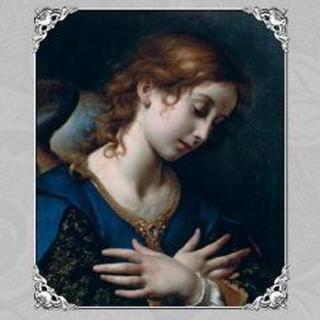
介绍:
CHAPTER XLIX.
VERA DOUKHOVA.
“So this is what it means, this,” thought Nekhludoff as he left the prison, only now fully understanding his crime. If he had not tried to expiate(赎罪) his guilt he would never have found out how great his crime was. Nor was this all; she, too, would never have felt the whole horror of what had been done to her. He only now saw what he had done to the soul of this woman; only now she saw and understood what had been done to her.
Up to this time Nekhludoff had played with a sensation of self-admiration, had admired his own remorse; now he was simply filled with horror. He knew he could not throw her up now, and yet he could not imagine what would come of their relations to one another.
Just as he was going out, a jailer, with a disagreeable, insinuating countenance, and a cross and medals on his breast, came up and handed him a note with an air of mystery.
“Here is a note from a certain person, your honour,” he said to Nekhludoff as he gave him the envelope.
“What person?”
“You will know when you read it. A political prisoner. I am in that ward, so she asked me; and though it is against the rules, still feelings of humanity—” The jailer spoke in an unnatural manner.
Nekhludoff was surprised that a jailer of the ward where political prisoners were kept should pass notes inside the very prison walls, and almost within sight of every one; he did not then know that this was both a jailer and a spy. However, he took the note and read it on coming out of the prison.
The note was written in a bold hand, and ran as follows: “Having heard that you visit the prison, and are interested in the case of a criminal prisoner, the desire of seeing you arose in me. Ask for a permission to see me. I can give you a good deal of information concerning your protegee(女被保护者,女门生), and also our group.—Yours gratefully, VERA DOUKHOVA.”
Vera Doukhova had been a school-teacher in an out-of-the-way village of the Novgorod Government, where Nekhludoff and some friends of his had once put up while bear hunting. Nekhludoff gladly and vividly recalled those old days, and his acquaintance with Doukhova. It was just before Lent, in an isolated spot, 40 miles from the railway. The hunt had been successful; two bears had been killed; and the company were having dinner before starting on their return journey, when the master of the hut where they were putting up came in to say that the deacon’s daughter wanted to speak to Prince Nekhludoff. “Is she pretty?” some one asked. “None of that, please,” Nekhludoff said, and rose with a serious look on his face. Wiping his mouth, and wondering what the deacon’s daughter might want of him, he went into the host’s private hut.
There he found a girl with a felt hat and a warm cloak on—a sinewy(矫健的;强健的), ugly girl; only her eyes with their arched brows were beautiful.
“Here, miss, speak to him,” said the old housewife; “this is the prince himself. I shall go out meanwhile.”
“In what way can I be of service to you?” Nekhludoff asked.
“I—I—I see you are throwing away your money on such nonsense—on hunting,” began the girl, in great confusion. “I know—I only want one thing—to be of use to the people, and I can do nothing because I know nothing—” Her eyes were so truthful, so kind, and her expression of resoluteness and yet bashfulness was so touching, that Nekhludoff, as it often happened to him, suddenly felt as if he were in her position, understood, and sympathised.
大家还在听

